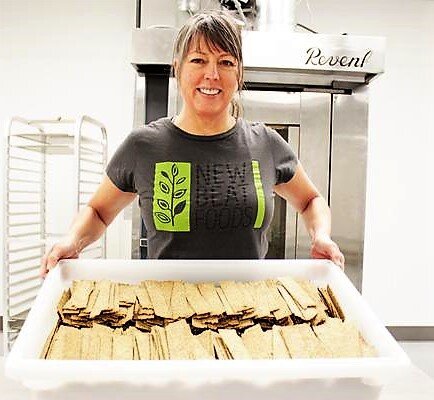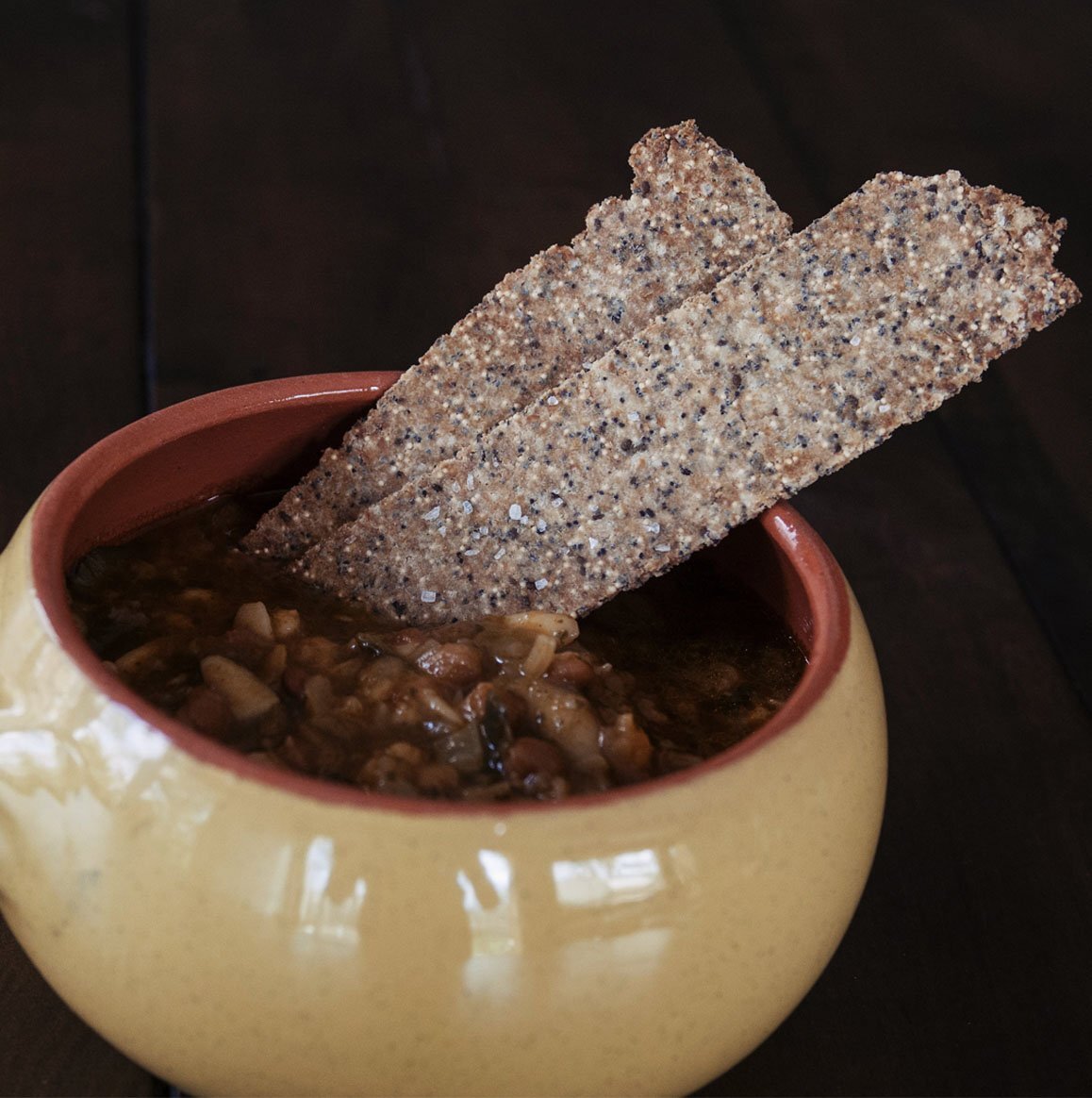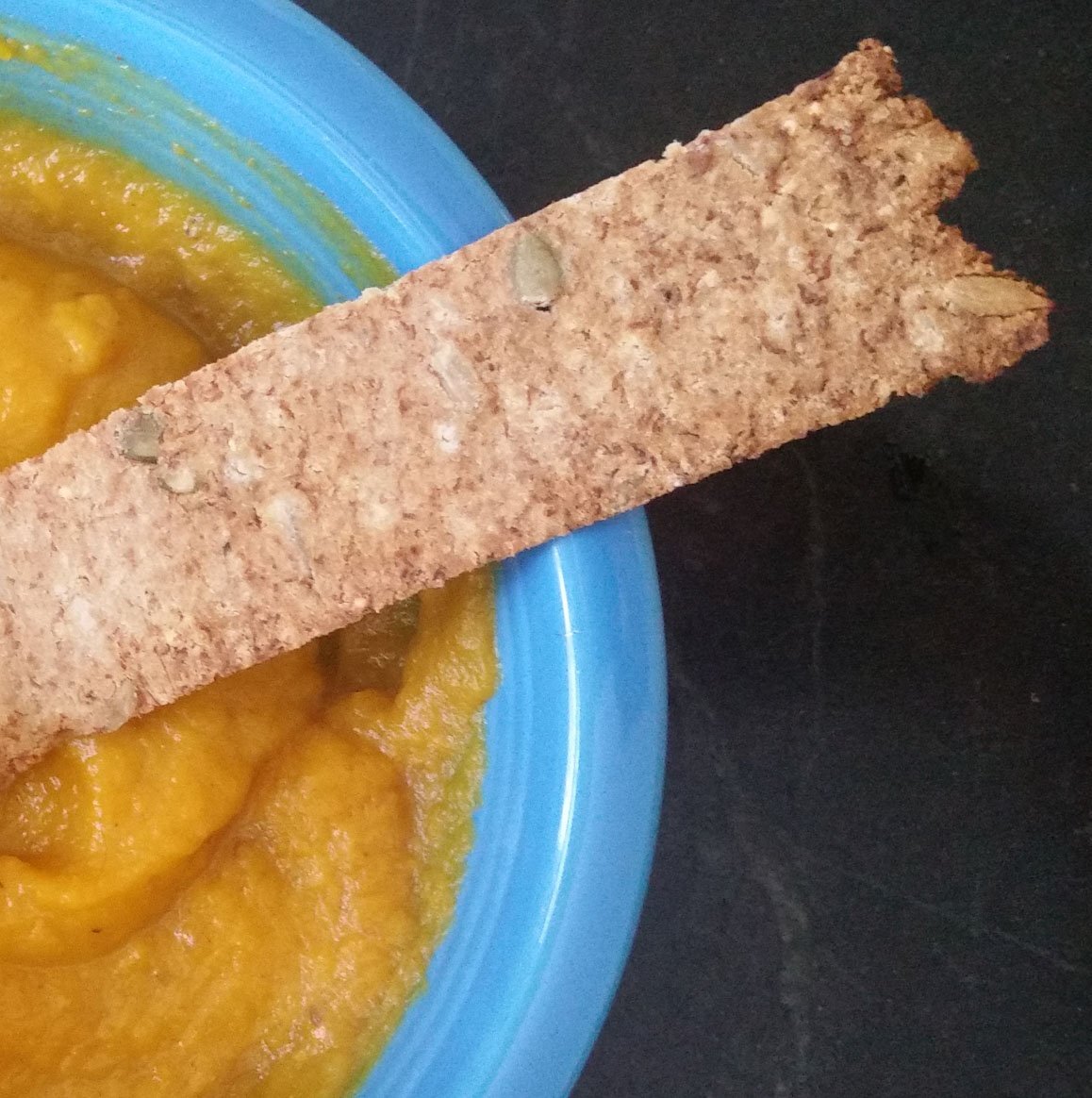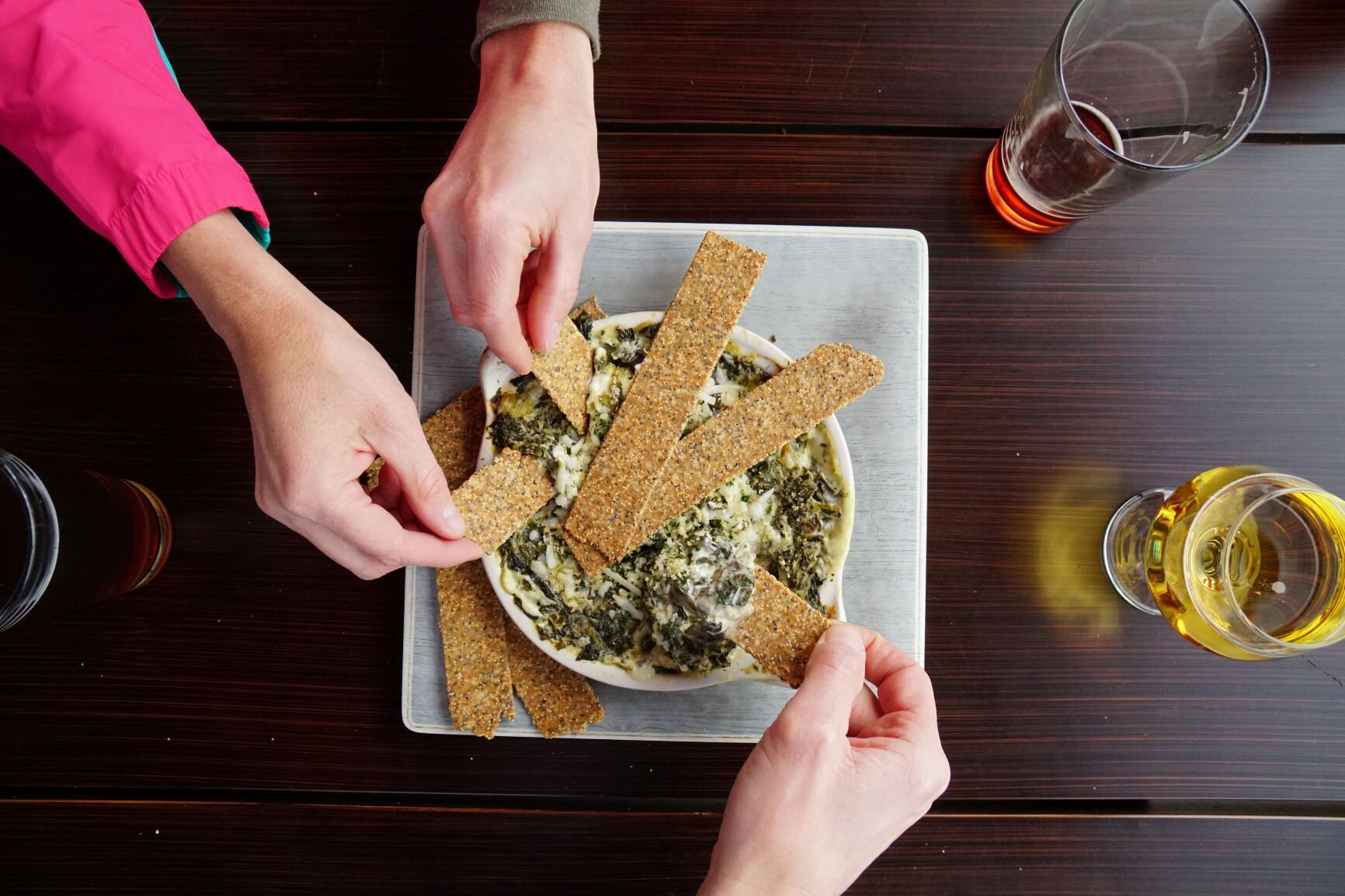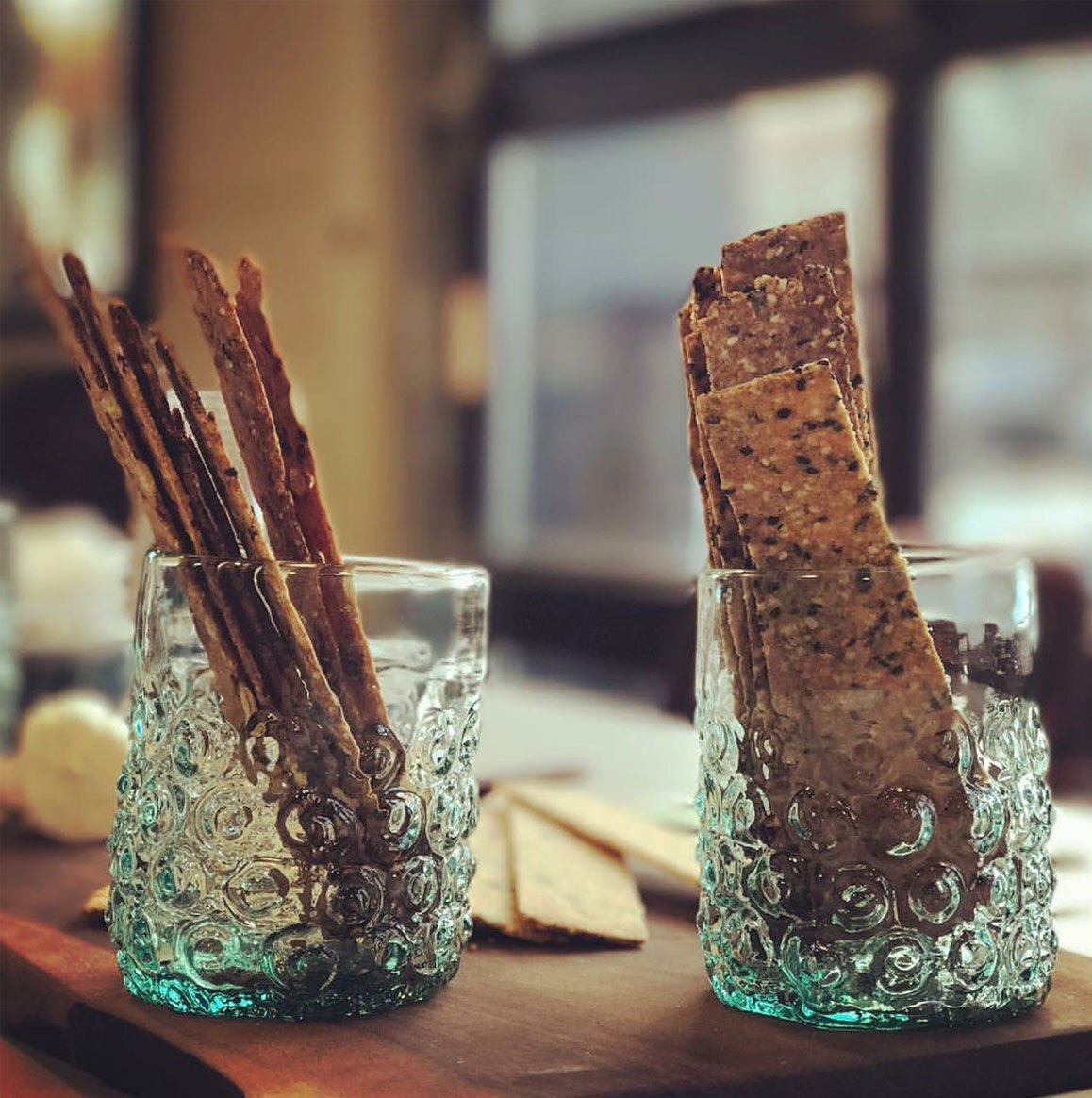Life Changes: Trish Kurnik turned a life-changing accident into an opportunity
By Nicole Newman // Photos Courtesy of Trish Kurnik
“When you go to the grocery store and look at gluten-free products in general, there are 20 to 30 ingredients in these products. This is not healthy. And you can’t even pronounce their names... All of the ingredients in our crackers all have major benefits: the seeds, the quinoa, the olive oil. There are zero fillers in my crackers and the ingredients were specifically chosen. Everything in there is fueling the body. ”
In 2001, Trish Kurnik’s life changed forever when she was hit by a car while riding her bike near her home in Boulder, Colorado. The trauma she experienced led to her diagnosis of celiac disease, changing her life forever. A life-long baker, Trish refused to allow her gluten allergy to get in the way of eating food that she loved. She got in the kitchen and started experimenting with desserts, but ultimately devoted herself to perfecting a gluten-free cracker made from quinoa and launched New Beat Foods.
We caught up with Kurnik to chat about her inspirational story and learn how she producing positive results out of a traumatic experience.
Nicole Newman: Can you tell me about what you were doing before the accident?
Trish Kurnik: Before I started New Beat Foods, I was a landscape architect. I was hit by a car while riding my bike in 2001. It was life-changing on so many levels. I couldn’t go back to work for over a year. I was in the brain injury program at Stapleton in Boulder and so much of my rehab was therapy and deciding what my next move was. I decided to go back to get my master’s in landscape architecture.
When I was in grad school in 2005, I was getting really sick. This was several years after the accident and I needed to figure out what was going on with my body. I went to a gastroenterologist and was diagnosed with celiac disease. It turns out trauma can trigger celiac disease. I think I’ve always had a problem with gluten but after the accident, I mean really, something in my body switched on.
Fast forward to 2011, I grew tired of high-glycemic, non-nutritional, gluten-free foods. And I am a baker; I’m always experimenting. So I decided to experiment with crackers because all that was really on the market was rice crackers. In 2014, I developed these recipes and I shared them with my husband who was not gluten-free and he loved them.
NN: How did you transition from architecture to New Beat Foods?
TK: [My husband and I] were at an Italian restaurant on this cold, snowy day and I wanted dessert, but they didn’t have any gluten-free options. I said to my husband, “what do you think of starting a food company.” The owner of the restaurant came up to me and I asked him about the idea. He said he was interested. So I went home, made a few desserts, brought it back and he said, “I’ll take it!” A couple weeks in, it didn’t quite feel right. That wasn’t where my heart was it. I wanted to make something nutritious. I went back to the drawing board and that’s when I started making my cracker recipe. By the spring of 2014, we were at the farmers’ market in Boulder selling crackers.
NN: I’d love to know more about gluten-free eating…
TK: My husband and I love to cook. I love entertaining, having people over, feeding them good food. Coming up with these products just fits into who I am as a person. I don’t eat processed foods at all and that was something that was important to me when I was coming up with recipes.
It’s always a compromise, and I got tired of compromising very early on. When you go to a restaurant, the amount of options you have that are gluten-free are minimal. And those options are often unhealthy. Covered in cheese or something else. You also have to be very careful because contamination is a huge issue. Many people don’t get that if there’s contamination, I can be sick for days, even the slightest bit of contamination. So New Beat Foods is in not just a gluten free kitchen, but a highly allergy-free kitchen.
NN: How did you create the recipe for your crackers?
TK: It was a lot of tasting and I had a lot of fun with it. Literally, was in my kitchen weekend after weekend, experimenting with different textures and ingredients. A lot of gluten free crackers are rice-based. The whole premise of New Beat Foods is eating different. As far as I know, there’s nobody else doing a gluten-free quinoa cracker in the United States. Just within my kitchen, dancing, listening to music, creating recipes, doing what I love…
NN: What are the health benefits? Ultimately, I want to know, why quinoa?
TK: Quinoa is very nutritious. It has a fair amount of protein and also is low glycemic— it’s not going to raise your blood sugar. It’s high in fiber and vitamin B.
NN: Your crackers have very few ingredients in them… why did you choose to do it this way?
TK: Health benefits. When you go to the grocery store and look at gluten-free products in general, there are 20 to 30 ingredients in these products. This is not healthy. And you can’t even pronounce their names. All of the ingredients in our crackers have major benefits: the seeds, the quinoa, the olive oil. There are zero fillers in my crackers and the ingredients were specifically chosen. Everything in there is fueling the body.
NN: You have four different flavors. What’s your favorite?
TK: I love them all; it depends what I’m having with them. Right now, I’m on a Cranberry Chorus kick. It pairs fabulous with nut butter, which I have for a snack almost every day. I have it with nutty-type cheeses. It’s surprisingly versatile. It’s also definitely the crunchiest cracker that we have.
NN: New Beat Foods partners with the Pollinator Partnership. Tell me about that.
TK: We want to do well by doing good. This ties in our mission. We are giving back a portion of our proceeds to the Pollinator Partnership, very specifically, the Bee Friendly Farming Program. This ties so many things together for me. I mentioned I was a landscape architect before I started New Beat Foods — I’m an avid gardener. And we use honey in our crackers. The Pollinator Partnership ties together all of my passions.
NN: Where do you see New Beat Foods in the next five, 10, even 15 years?
TK: I would love to continue to grow New Beats Foods. So many people focus on getting equity and growing, and then five or 10 years in, the company fails or the heart of the business is gone. I want to keep the heart in New Beat Foods. I want to be with it as long as I can. We are a very small company. We have amazing relationships with small stores and those relationships are super important to me. For the first five years, we were at the farmers’ markets and I was creating relationships with customers. I want to keep improving people’s lives through food. We are on a steady, sustainable rate of growth. I’m not willing to give any of the company away. We are bootstrapping the company and growing as much as that will allow.
NN: Why is the maker movement important to you?
TK: We’ve just gotten so far away from our food. Making your food, do you know your farmer’s name? We’ve lost touch with that. Small businesses in general have a much greater pulse of what their customers want. I answer emails about where the quinoa comes from, how the cracker is made. It all goes back to relationships and just caring. That level of accountability. There are so many food companies out there that have really lost touch and I think the maker movement is bringing that back. And people are responding to that. It’s great to see the energy behind that.


